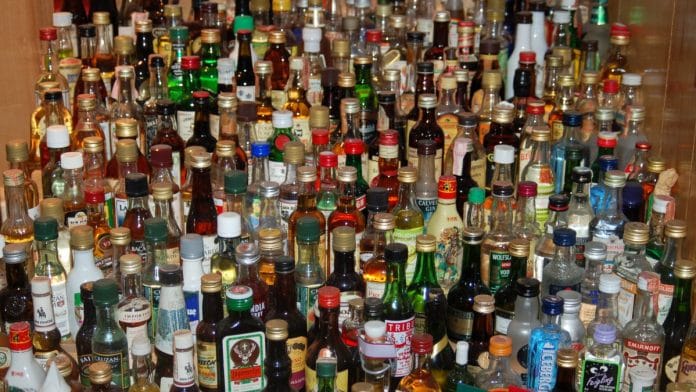Since Nitish Kumar brought in prohibition in December 2015, Bihar’s neighbours Jharkhand and West Bengal have seen steady spikes in their excise revenue.
New Delhi: Bihar chief minister Nitish Kumar’s decision to impose prohibition in December 2015 has cost the state exchequer over Rs 3,000 crore. But Bihar’s loss has been neighbours’ gain.
In the years following Bihar’s booze ban, states such as West Bengal and Jharkhand have seen a consistent spike in their excise revenue.
Jharkhand has seen a rise from Rs 912 crore in 2015-16 to Rs 961 crore the next fiscal. And, in 2017-18, that figure is expected to touch Rs 1,600 crore.
For West Bengal, the numbers are even bigger. Its excise revenues went up from Rs 4,014 crore in 2015-16 to Rs 5,201 crore in 2016-17. Estimates say the figure in 2017-18 could be Rs 5,781 crore.
For Bihar, though, it’s all been downhill. Just before the ban was announced, its excise revenue for 2015-16 was Rs 3,142 crore. The following year, it crashed to Rs 46 crore. And, estimates show that it will likely end up an absolute zero in 2017-18.
Revenue loss across sectors
“The Bihar government is losing revenue as far as the state excise is considered. The liquor ban has also had a negative impact on the hospitality business as well as the trade sector,” said Sanjay Pandey, a professor of economics at Patna University.
“The liquor ban has also resulted in the neighbouring states minting more money as tipplers from Bihar travel to nearby states in order to consume alcohol,” he said.
The chief minister had earlier said he was not worried about the fall in revenue from prohibition and expected the loss to be made up by better collections on account of more spending on consumables. But experts aren’t so sure.
“As a student of economics, I can say that Nitish Kumar has done lots of unproductive expenditure — say, building a second museum and other fancy buildings. The only thing left for Nitish Kumar is to erect the Taj Mahal,” said Patna-based political analyst N.K. Choudhary.
As for the political costs and gains, Choudhury was of the view that Kumar would get votes from women as they have immensely benefited from the liquor law.
The ban on liquor in Bihar has led to a flourishing boot-legging trade in the state although crossing its border is an option for those who are deterred by the stringent provision of the law.
As per the Bihar Excise (Amendment) Act, 2016, anyone found in possession of liquor bottles can be punished with imprisonment for a term ranging from 10 years to life and a fine ranging from Rs one to 10 lakh.
There have been several allegations of government officials violating the prohibition law. Rahul Kumar, son of BJP MP Hari Manjhi, was recently arrested for allegedly consuming liquor at Gaya.






